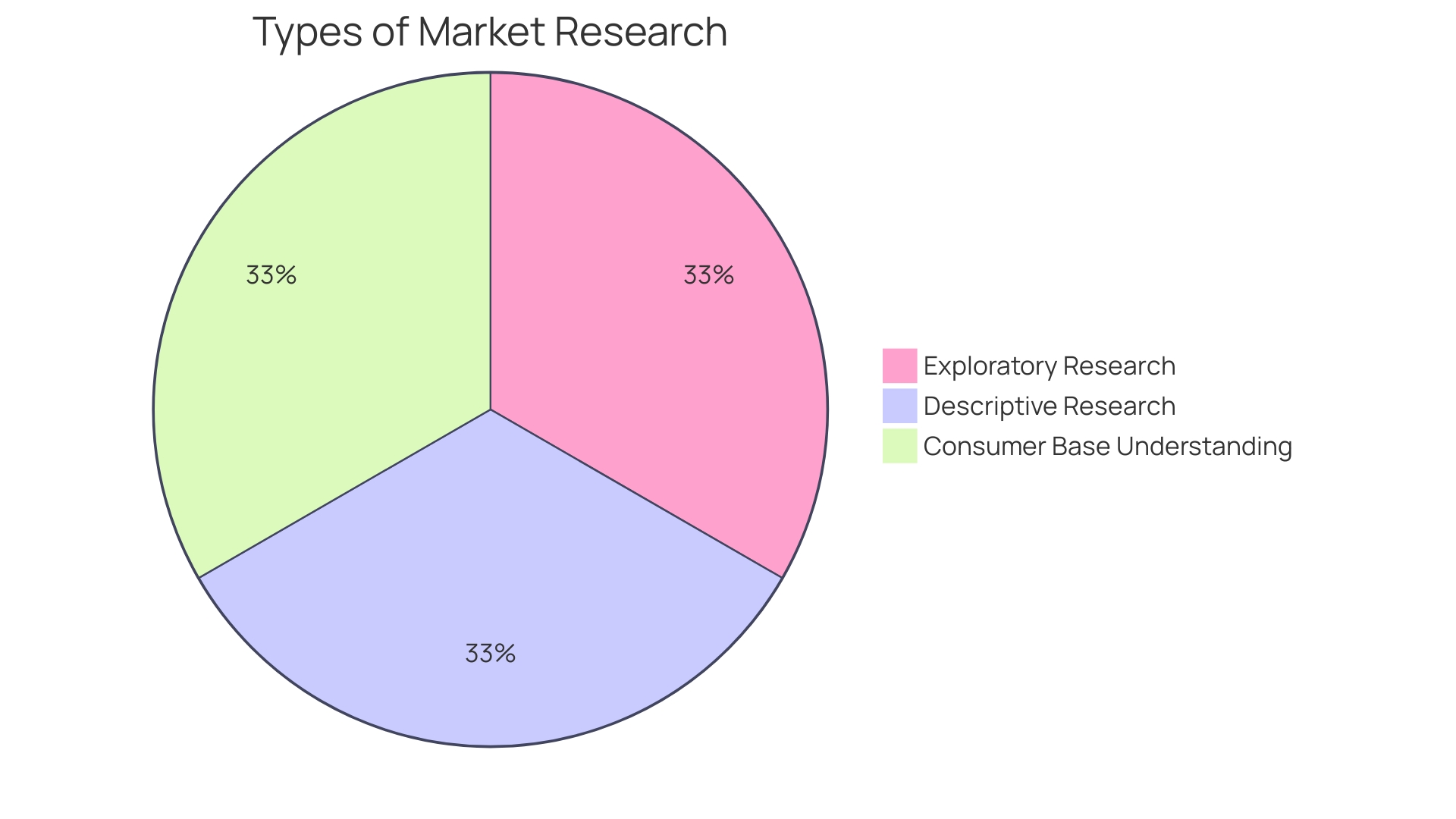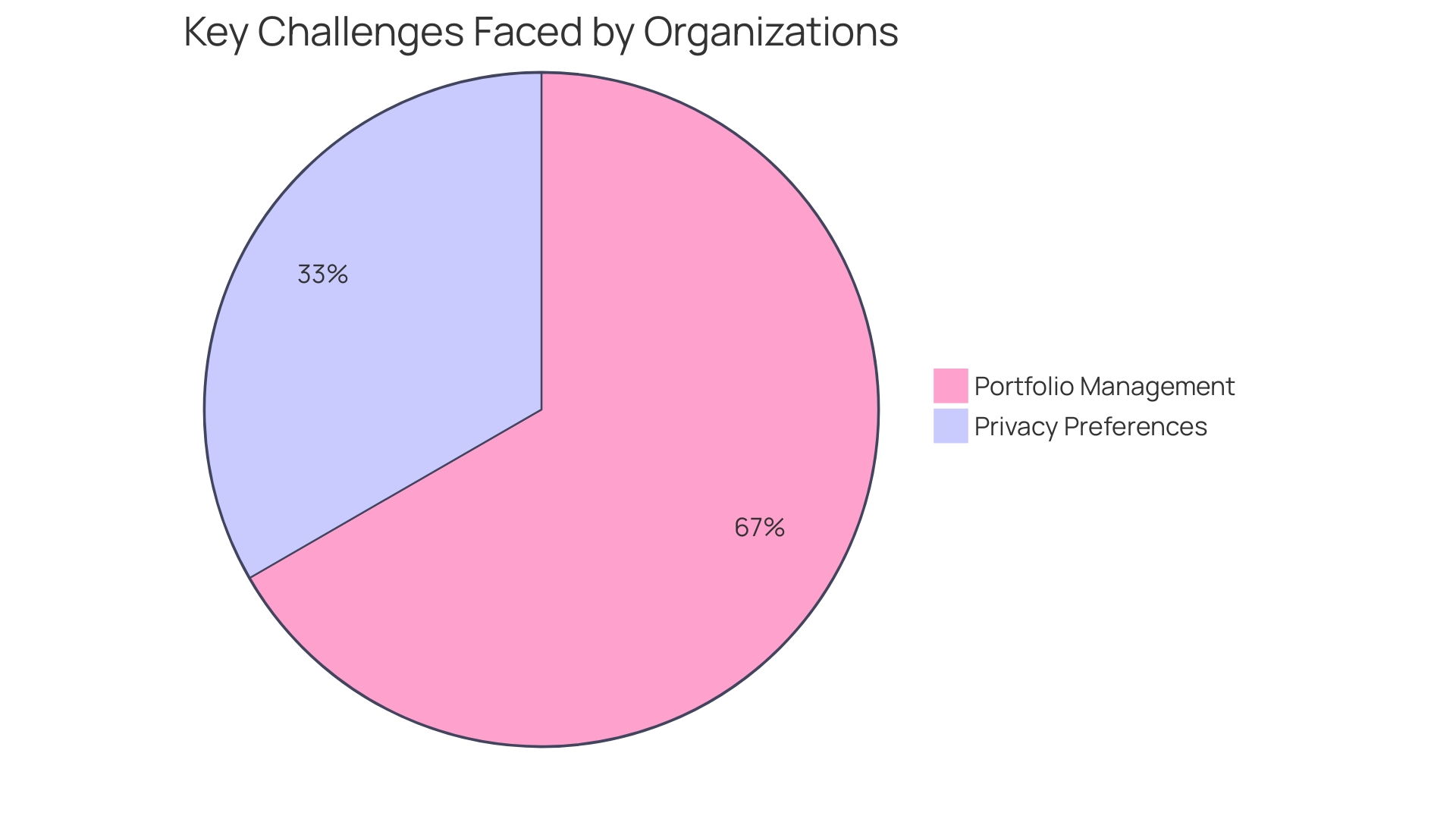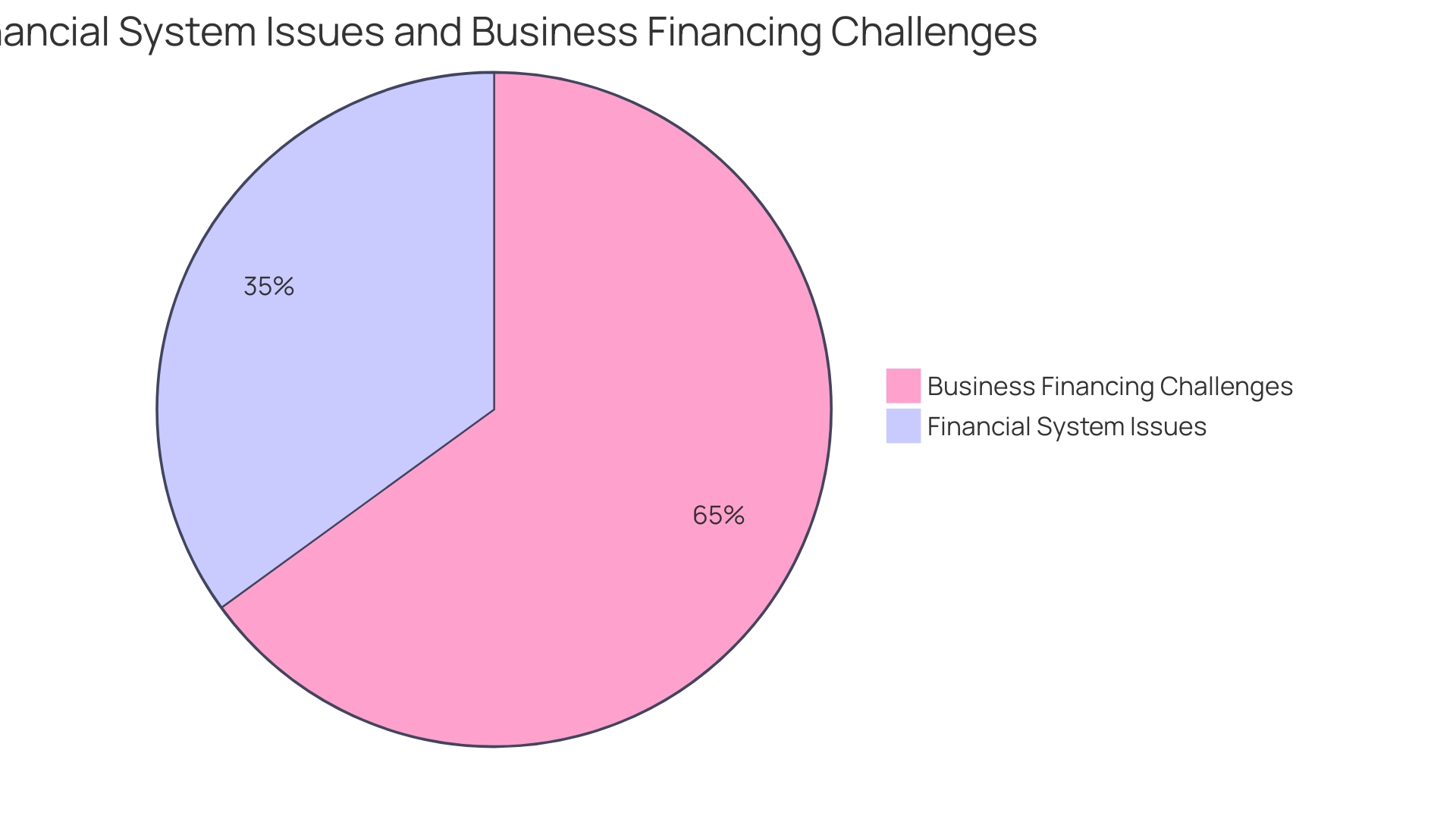Introduction
Cash flow management, strategic planning, effective leadership, diversification, and adequate financing are all crucial elements for the success and sustainability of a business. In this article, we will explore the impact of poor cash flow management, the importance of strategic planning and market research, the role of effective leadership and management, the dangers of overdependence on a few key clients, and the consequences of inadequate financing and financial management. By understanding and addressing these key factors, businesses can navigate challenges, make informed decisions, and position themselves for long-term success in a competitive market.
Poor Cash Flow Management
The expertise of cash flow management is a crucial element for organizational sustainability. It's not just about ensuring there's enough money to meet expenses, but also about understanding the complete economic picture through regular review of statements, including cash flow statements, income statements, and balance sheets. These documents reveal critical insights into revenue, expenses, profitability, and debt, which are essential for making informed decisions about fund allocation and investments that yield returns.
A cash flow statement, especially, is an essential instrument for small enterprises, functioning as a gauge for economic well-being. It outlines the origins and uses of cash, categorizing them into operations, investments, and financing. Positive cash flow from operations indicates a company's capability to generate sufficient cash from its core operations without resorting to external funding. This includes cash received from customers, the cost of producing goods or services, payments to suppliers, labor costs, as well as tax and interest payments.
Understanding gross margin is also fundamental. It's the distinction between revenue and the cost of goods sold (or services), and it's the metric that can determine the outcome of your organization. A higher gross margin allows for greater overhead expenses and contributes directly to net profit. For example, attaining an 80% gross margin rather than 20% greatly enhances the capacity to cover additional costs and operate a thriving enterprise.
Nevertheless, despite thorough monetary strategizing, enterprises should be ready to confront the most unfavorable circumstances. As per insights from James Mohs, associate professor at Pompea College of Business at the University of New Haven, recognizing the right time to consider bankruptcy is crucial after all other options have been exhausted. Exploring alternatives such as refinancing, stock issuance, or turning to personal networks can provide avenues for raising funds without taking on excessive risk.
Ultimately, knowing your numbers, having a smart allocation plan, and being prepared for contingencies form the triad of effective cash flow management. Without these, companies may find themselves in precarious positions, potentially leading to financial distress and the need for drastic measures such as bankruptcy.
Lack of Strategic Planning and Market Research
A strong tactical strategy and thorough market analysis are foundations of achieving success in commerce. Developing a strategic plan allows organizations to create a distinct direction ahead, highlighting opportunities in the industry that they can exploit for expansion. On the other hand, ignoring research in the marketplace can result in a disconnection with the needs of customers, an inability to differentiate from rivals, and ultimately, unfavorable decisions for the company. It's the blend of data literacy, critical thinking, and informed decision-making that empowers organizations to navigate the competitive landscape effectively.
Data literacy—understanding how data is collected, analyzed, and interpreted—guides enterprises in identifying trends and making sense of the consumer and economic dynamics. For instance, a 2022 survey from Qlik highlighted that a whopping 85 percent of business executives view data literacy as a key driver for success. This literacy aids in performing both primary and exploratory research, from conducting surveys to analyzing consumer behavior through focus groups and data analytics.
Additionally, acquiring knowledge about the wider industry trends through reports and studies is crucial in comprehending the competitive environment. As demonstrated by a professional with over ten years of experience in financial analysis and risk management, the ability to analyze financial standing and develop investment strategies is pivotal. Such expertise is gained through hands-on experience in the industry and underpins the importance of a robust strategic plan and thorough market research.
Essentially, whether it's primary research that involves direct data collection or descriptive research aimed at detailing the characteristics of the marketplace, these processes are essential for the survival and prosperity of enterprises. They enable enterprises to comprehend their market size, customer demographics, and behaviors, as well as anticipate future trends. In a world where over 600,000 startups vie for market dominance, with a significant number in technology, healthcare, and finance, the ability to conduct effective market research and strategic planning is not just a nice-to-have but a fundamental necessity.

Ineffective Leadership and Management
Leadership and operational deficiencies are critical factors that can lead to a small business's demise. When leaders lack the necessary acumen to steer the company effectively, adverse outcomes ensue, such as deteriorating employee morale, misaligned objectives, and overall performance declines. A compelling example of this is Toyota's Woven Planet initiative, which faltered due to execution missteps despite a promising vision. The venture aimed to create a standardized software ecosystem for the automotive industry, leveraging advanced technology to test self-driving cars and other innovative projects. Nevertheless, despite having an experienced tech expert in charge, the project faced challenges due to insufficient zone administration and implementation techniques.
To circumvent such pitfalls, it's crucial to establish clear goals, maintain effective communication with staff, and cultivate a positive corporate culture. Beyond leadership, robust management is imperative to ensure the efficient utilization of resources, streamlined processes, and an inspired workforce. As noted by Martin Zwilling, leadership is not merely a title; it embodies behavior and requires daily refinement. Likewise, enterprises must establish systematic procedures to listen to signals from employees and customers, evaluate change opportunities, and participate in well-communicated strategies to implement adjustments and pivots successfully.
Mergers and acquisitions, often pursued for growth, can fail without such structured processes, as integration doesn't guarantee value creation. Furthermore, disaster preparedness is crucial, as is the ability to respond to unforeseen challenges, which entails identifying risks, developing response plans, and committing to ongoing disaster plan reviews. This proactive approach, coupled with leveraging human insight and AI capabilities, can enhance a leader's ability to anticipate and navigate uncertainties, ultimately fortifying the structural components of a business against internal and external threats.
Overdependence on a Few Key Clients and Failure to Diversify
Enterprises that heavily rely on a restricted customer base or fail to innovate in their product offerings are engaging in a risky game. This approach can leave a company vulnerable if a significant client withdraws or industry trends shift. Expanding both customer base and range of products can reduce these risks, enabling companies to withstand turbulence from changes in the economy and prevent excessive dependence on a single source of income.
Take the story of WeWork, for example. Once valued at an astonishing $47 billion, it had ambitions to not only dominate the office space leasing industry but to 'change the world.' However, once WeWork's financials were scrutinized post-IPO filing, the company's weaknesses were laid bare, leading to a dramatic fall from grace.
Similarly, the rapid decline of Convoy illustrates the dangers of a model dependent on aggressive market share acquisition without sustainable economics. Convoy's eight-year journey from rising star to cautionary tale exemplifies the perils of not having a diversified and economically sound client strategy.
The significance of diversification is further emphasized by the recent increase in insolvencies, reaching levels not witnessed since the 2009 economic meltdown. Reports indicate a 10% increase in insolvencies and a 25% spike in firms experiencing 'critical financial distress' in just three months. These trends highlight the fragility of businesses that lack a diversified approach.
In the end, the key to achieving long-term growth and stability lies not only in gaining access to a substantial consumer base. As mentioned by academic professionals Cornell and Damodaran, achieving success in a sizable industry necessitates acquiring a substantial portion, which can be difficult in segmented or fiercely contested settings. This is a lesson underscored by the airline industry's history where, despite being a transformative technology, profitability for investors has been elusive due to intense competition and capital intensity.
Hence, it is essential for enterprises to broaden their customer base and investigate fresh opportunities to guarantee they are not vulnerable to the caprices of a few or changes in the economic scenery.

Inadequate Financing and Financial Management
The growth and sustainability of a business can be seriously hindered by insufficient funding and mediocre money management. Limited access to capital constrains a company from making critical investments in areas such as new equipment or market expansion. Moreover, feeble monetary practices, such as imprecise fiscal reporting, inefficient budgeting, and insufficient expense control, can result in a precarious economic situation and, in certain instances, the collapse of the enterprise. Building a strong basis of effective management of money, combined with obtaining enough funding, is crucial for the long-lasting prosperity of any entrepreneurial endeavor.
Expertise in finance is crucial for navigating the intricacies of statements, which include cash flow, income, and balance sheets. Dr. Sharon H. Porter stresses the significance of a thorough understanding of these figures for the success of your enterprise. A well-designed plan that incorporates budgeting, forecasting, and meticulous record-keeping forms the foundation of effective management, as mentioned by Mitt Mehta of SENTA Partners.
In addition, the economic landscape has witnessed the highest occurrence of company insolvencies since 2009. With economic instability on the rise, companies in 'critical monetary distress' have surged by 25%, underscoring the need for robust fiscal strategies. In such unstable times, businesses are recommended to collaborate with professionals in finance who can provide advice on early retirement planning, which also serves as a way to examine the economic well-being of a business.
As monetary transactions go digital, the value of transactions in regions like Africa has grown from 26% to 35% of GDP between 2021. This digital proliferation highlights the need for skilled handling of resources to harness these emerging opportunities effectively. To ensure financial health and avert the risk of bankruptcy, which is the most common cause of startup failure, it is imperative to have a clear understanding of money management and the duration your financial resources can sustain your business.

Conclusion
In conclusion, effective cash flow management, strategic planning, leadership and management, diversification, and adequate financing are crucial for business success. By understanding financial statements and exploring alternative funding options, businesses can ensure their financial health. Strategic planning and market research enable businesses to make informed decisions and identify growth opportunities.
Strong leadership and management foster a positive corporate culture and efficient resource utilization. Diversifying the client base and product lines mitigates risks associated with overdependence. Inadequate financing and financial management can hinder growth, emphasizing the need for sound financial practices.
By addressing these key factors, businesses can navigate challenges and position themselves for long-term success. Prioritizing cash flow management, strategic planning, leadership, diversification, and adequate financing is essential for business prosperity.




